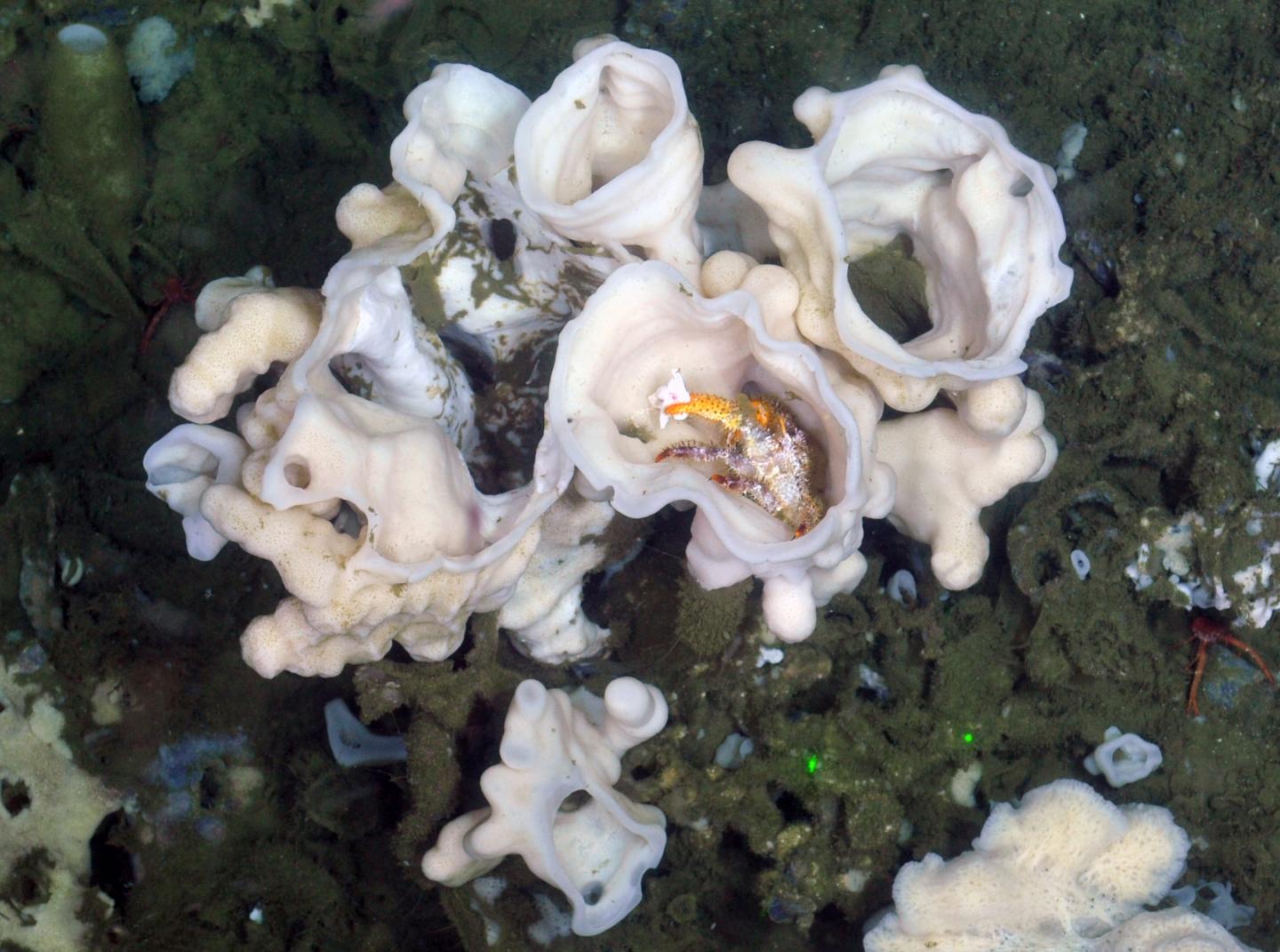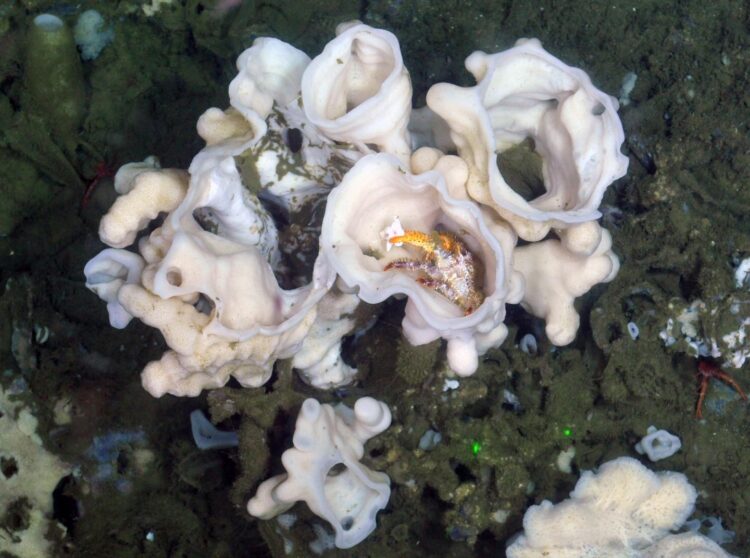Newly discovered sea sponge wields influence over reef function and ecosystem health

Credit: Sally Leys
Deep in the inky ocean abyss off the coast of British Columbia, reefs made of glass sea sponges cover hundreds of kilometres of the ocean floor. The sponges form multi-storied habitats, their glass skeletons stacked on top of one another to create intricate reefs. And while their description may sound otherworldly, these reefs are home to creatures with whom we are very familiar, including halibut, rockfish, and shrimp.
In February 2017, Fisheries and Oceans Canada designated this region–including Hecate Strait and Queen Charlotte Sound–a marine protected area in order to preserve the delicate, glass reefs. But to effectively manage conservation efforts, scientists must develop a better understanding of the lifeforms that are already there.
“One of the most important reasons for studying the diversity of sea sponges in our oceans is for conservation management,” explained Lauren Law, who conducted this research as part of her graduate studies with Sally Leys, professor in the University of Alberta’s Department of Biological Sciences. “Many studies in the protected area have focused on describing the crustaceans and fish living in the reefs, but non-reef forming sponges remain overlooked.”
Now, the UAlberta research team has published a study on the discovery of a new sponge that is abundant in the region, making up nearly 20 per cent of the live sponges in the reefs off the coast of British Columbia. The new species–called Desmacella hyalina–was discovered using an underwater robot that travelled along the ocean floor, surveying reefs and collecting samples.
“Our findings show Desmacella comprise a surprisingly large amount of live sponge cover in the reefs and can have potential major influence on reef function, recruitment, and overall ecosystem health,” said Law, who is now a biologist with Fisheries and Oceans Canada Pacific Region. “While we have discovered a new species, we have yet to determine its relationship with glass sponges in the area.”
The researchers recommend further investigation to better understand the role of Desmacella in the ecosystem, as well as more ecological assessment of glass sponge habitat focused on surveying non-reef forming sponges.
“Properly knowing the components of an environment and the linkages between them–here this new species Desmacella hyalina and the reef sponges it lives on–is a major step forward in understanding the ecosystem services and function of the sponge reefs,” added Leys. “This is the information we need for concrete management strategies.”
###
This research was supported by the Canadian Healthy Oceans Network and its partners: Department of Fisheries and Oceans Canada and the Northern Institute for Research in Environment and Occupational Health and Safety.
The paper, “Description and distribution of Desmacella hyalina sp. nov. (Porifera, Desmacellidae), a new cryptic demosponge in glass sponge reefs from the western coast of Canada,” was published in Marine Biodiversity (doi: 10.1007/s12526-020-01076-6).
Media Contact
Katie Willis
[email protected]
Original Source
https:/
Related Journal Article
http://dx.





